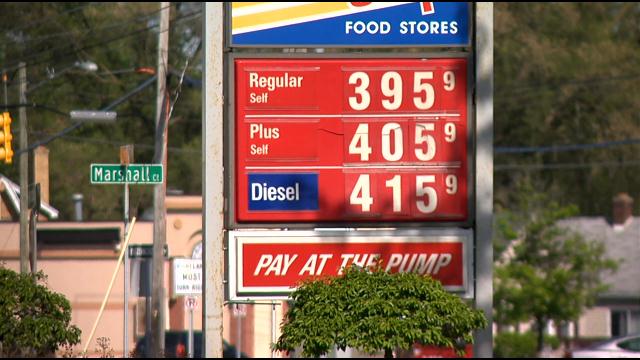Michigan Legislators, Business Groups Debate Proposed Fuel Tax Hike
State senators in Michigan returned to Lansing Monday in a rare session to discuss raising fuel taxes to fund improvements to the state’s road infrastructure.
Detroit Free Press reports majority leader Randy Richardville of Monroe is proposing a new tax to replace the current fuel taxation scheme. At the moment, regular unleaded fuel is taxed at 19 cents per gallon, while diesel sees 15 cents per gallon go to Lansing’s coffers. The new scheme would replace both taxes with a wholesale fuel tax, beginning at 9.5 percent next January, then rising to 15.5 percent by 2018. The tax will result in 25 cents per gallon sent to the government, raising an additional $1.5 billion annually to repair and maintain the state’s roads and bridges. Meanwhile, the state house wants to set a wholesale tax of just 6 percent, delivering $450 million a year.
Though Governor Rick Snyder is on board with Richardville’s proposal, business groups are split over the wholesale tax plan. The state chapter of the National Federation of Independent Business objects to the new tax, believing the tax could not come at a worse time as president Charlie Owen explains:
While we recognize the need for good roads and adequate funding, this is a difficult time for fuel tax increases on Michigan small-business job providers as we watch the price of gasoline approach $4 a gallon. The rising price of fuel and the recent increase in the minimum wage are already putting pressure on Michigan’s small and family-owned businesses. Raising the gas tax would cut more from their bottom line.
Michigan Chamber of Commerce Senior Vice President Jim Holcomb, however, sees no problem with the proposal because of the amount the tax would raise for road projects per annum. The chamber itself urged state lawmakers to solve the problem before facing the possibility of putting the question before the populace on the November 2014 ballot. If passed, the wholesale tax, in tandem with the state’s general sales tax, would give Michigan the title of having the highest fuel taxes in the United States, up from sixth place right now.
Seattle-based writer, blogger, and photographer for many a publication. Born in Louisville. Raised in Kansas. Where I lay my head is home.
More by Cameron Aubernon
Latest Car Reviews
Read moreLatest Product Reviews
Read moreRecent Comments
- Turbo Is Black Magic My wife had one of these back in 06, did a ton of work to it… supercharger, full exhaust, full suspension.. it was a blast to drive even though it was still hilariously slow. Great for drive in nights, open the hatch fold the seats flat and just relax.Also this thing is a great example of how far we have come in crash safety even since just 2005… go look at these old crash tests now and I cringe at what a modern electric tank would do to this thing.
- MaintenanceCosts Whenever the topic of the xB comes up…Me: "The style is fun. The combination of the box shape and the aggressive detailing is very JDM."Wife: "Those are ghetto."Me: "They're smaller than a Corolla outside and have the space of a RAV4 inside."Wife: "Those are ghetto."Me: "They're kind of fun to drive with a stick."Wife: "Those are ghetto."It's one of a few cars (including its fellow box, the Ford Flex) on which we will just never see eye to eye.
- Oberkanone The alternative is a more expensive SUV. Yes, it will be missed.
- Ajla I did like this one.
- Zerofoo No, I won't miss this Chevrolet Malibu. It's a completely forgettable car. Who in their right mind would choose this over a V8 powered charger at the rental counter? Even the V6 charger is a far better drive.


































Comments
Join the conversation
Sixth-highest in the nation already?! I would like to know where all that money is going now, before I agree to pay even more. We have roads around here that resemble the surface of the moon.
Switching to ad valorem taxes makes sense. As fuel prices rise, fuel tax revenues generally fall as people reduce consumption. Ad valorem taxes can mitigate the negative impact on tax revenue caused by rising prices. However, ad valorem taxes are also risky. If global demand is weakened by an economic slow-down in China, the price of oil could fall sharply. Ad valorem tax revenues would decrease sharply, though demand would probably not rise sharply due to CAFE regulations. By converting to ad valorem, Michigan is assuming the price of oil cannot fall sharply due to Chinese stability and marginal production costs. Also consider the possible unintended consequences. The best way to avoid tax for suppliers is to reduce the cost of their product. Production efficiency is good, but they may find ways to reduce the quality of their gasoline. If ad valorem fuel taxes were adopted at the federal level, refiners may be pitted against auto manufacturers, as refineries lobby to blend cheaper fuels, like tax subsidized ethanol. As far as the rate is concerned, 10% is probably more appropriate at the state level than 6%.